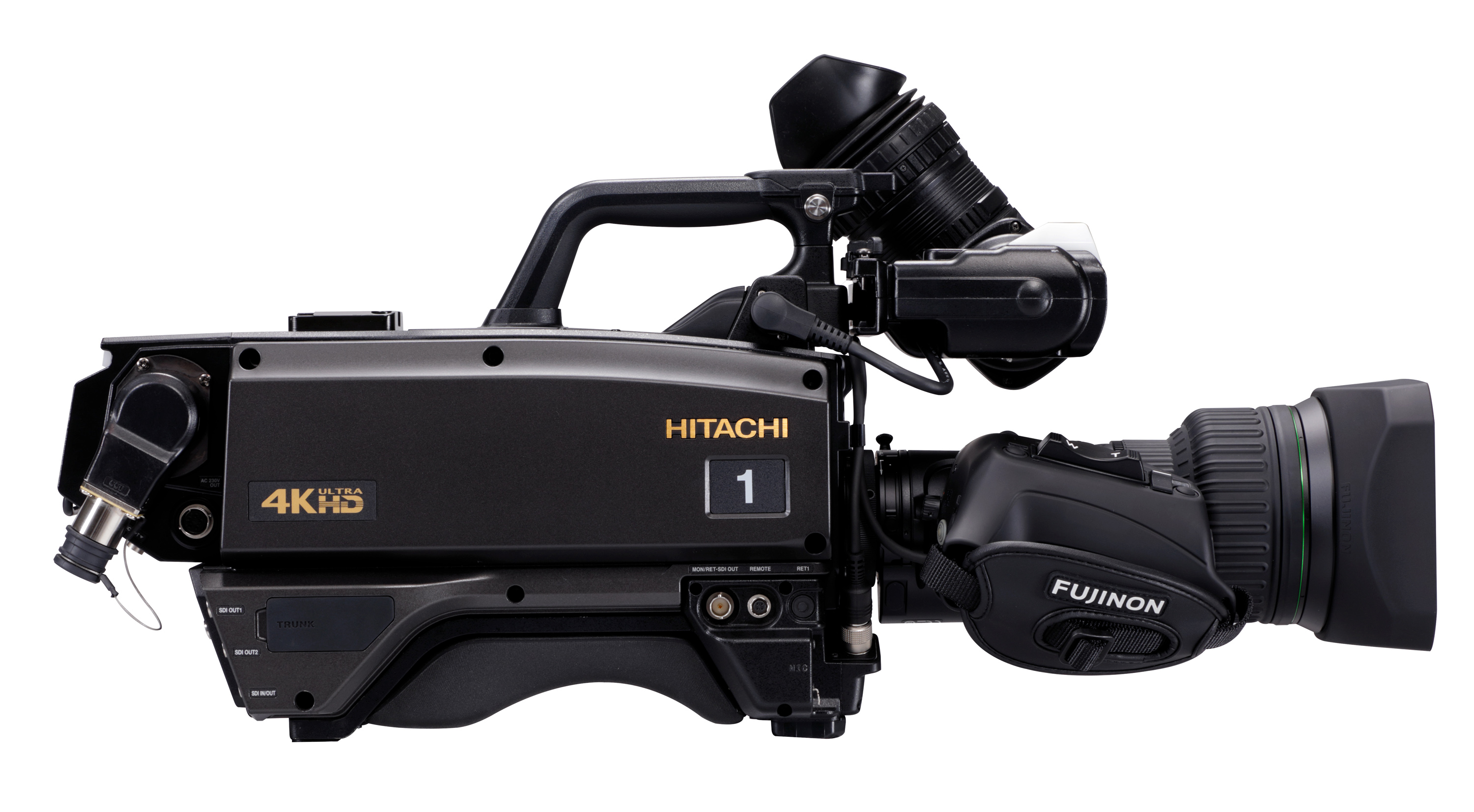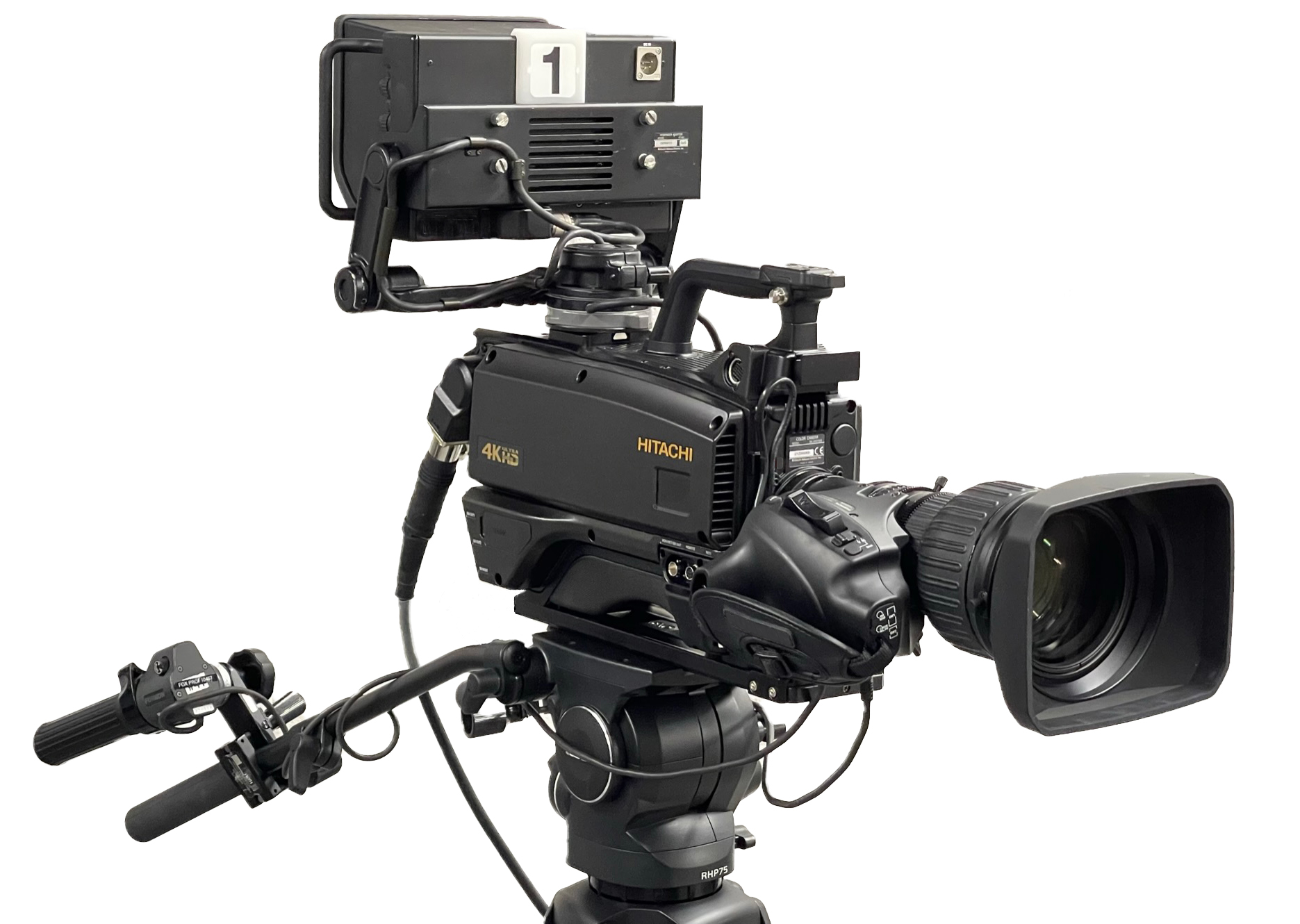Hitachi Kokusai Electric America announced its second-generation 4K Ultra HD broadcast and live production camera system, the SK-UHD7000. The successor to the popular SK-UHD4000 4K studio and field production camera, the new SK-UHD7000 continues the Hitachi tradition of delivering exceptional visual quality and superior price and performance value for professional, live production applications. The company will showcase the new camera in booth C4409 at the 2022 NAB Show, taking place April 24-27 in Las Vegas.
“Hitachi has a rich history of designing products that make advances in technology both practical and affordable,” said Sean Moran, chief operating officer, Hitachi Kokusai. “We are excited to bring the SK-UHD7000’s exceptional performance and extensive feature set to market at a cost-effective price point that makes native 4K live production accessible to more customers. It is ideal for a wide range of applications, from television broadcasters future-proofing their production workflows, to live production companies striving to offer the utmost quality to their clients, to houses of worship linking multiple satellite locations with life-like video.”
[Lighthouse Church Rebuilds after Hurricane with Hitachi Cameras]
Impeccable Images

The SK-UHD7000 incorporates three 2/3-inch, global shutter CMOS image sensors with native 4K resolution, enabling pristine capture of 3840x2160 Ultra HD (UHD) video. A new prism design with expanded spectral range fully complies with all international colorimetry specifications and enables superior color reproduction. The high-performance sensors and new prism combine to enable full-range BT.2020 UHD Wide Color Gamut (WCG) capture. A dual 4K and HDTV workflow supports separate controls for Hybrid Log Gamma (HLG) High Dynamic Range (HDR) and standard dynamic range (SDR).
The SK-UHD7000 continues the SK-UHD4000’s hallmarks of delivering extraordinary sensitivity and quality for Ultra HD production. Sensitivity of F11 at 59.94 frames per second enables high-quality acquisition in limited lighting, while a signal-to-noise ratio (SNR) of 62 dB provides ultra-quiet images. Advanced digital processing technology and a wide array of image refinement tools enable precise tailoring of the accuracy and look of productions. Operational features such as focus assist and viewfinder zoom make it easier for users to perform critical focus at 4K resolution. The SK-UHD7000’s powerful new processor also provides plenty of headroom for additional functionality in the future.
[SCN Exclusive: Expect Big Changes at 2022 NAB Show]
Comfort and connectivity

The SK-UHD7000’s streamlined, one-piece camera chassis has a low center of gravity and presents a light load on the camera person’s shoulder for easy handheld video acquisition. As a full-featured, broadcast-class system camera, the SK-UHD7000 provides integrated prompter power, video monitoring, and intercom connectivity at the camera body; a motorized, optical ND filter turret; and a lens mount that does not require a mechanical or optical adapter for standard B4 interchangeable lenses.
Full-bandwidth, uncompressed, native 4K signals are transported from the SK-UHD7000 camera head to the new CU-UHD7000 camera control unit (CCU) via SMPTE 311M hybrid fiber optic cable over distances up to two kilometers. Single-link, 12G-SDI connectivity also provides 4K output directly from the camera head, while integrated HD down-conversion offers 1080p, 1080i, or 720p output for multi-format production applications. Embedded audio is available on all SDI outputs and as listen-channels on the intercom connections.
[NAB Show Symposium to Tackle Diversity, Equity, and Inclusion]
A trunk data interface supports video transport and control of TCP/IP-capable devices connected directly to the SK-UHD7000 camera head, enabling applications ranging from robotic movement and IP-based prompting to VR/AR 3D space positioning. The new camera also retains compatibility with existing Hitachi control panels and third-party control systems.
Hitachi Kokusai will start shipping the SK-UHD7000 at the beginning of April.
